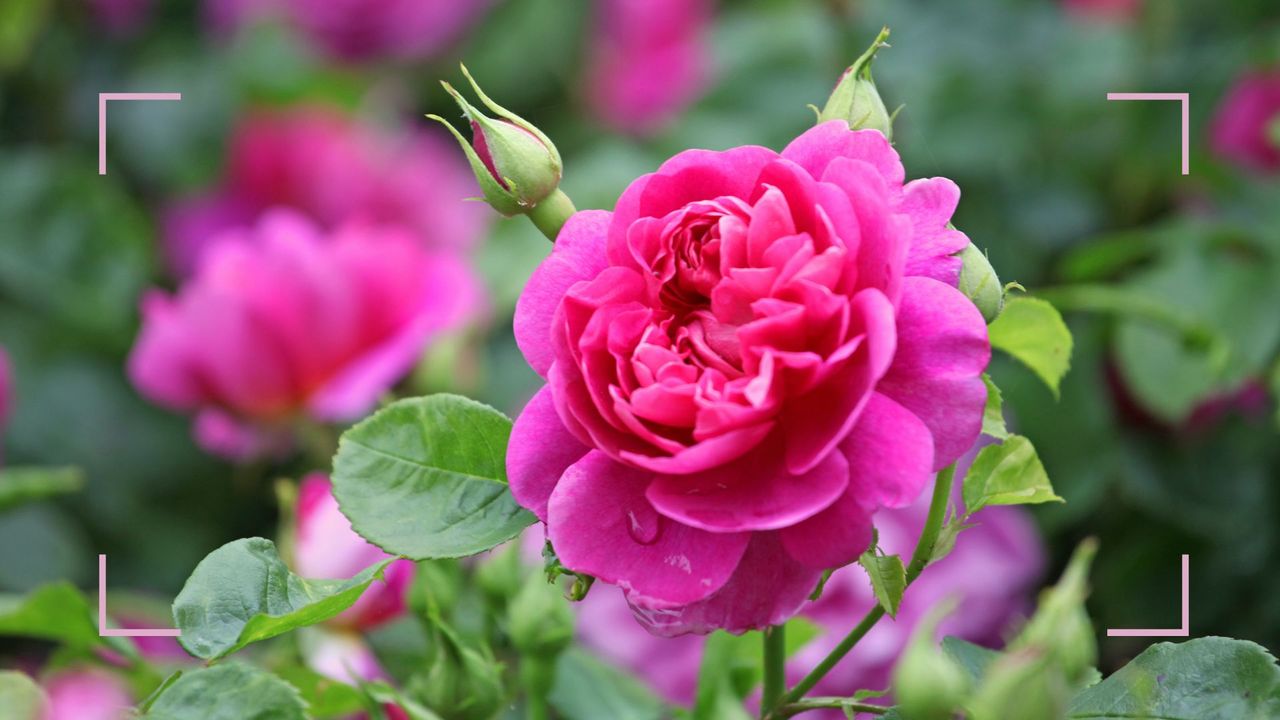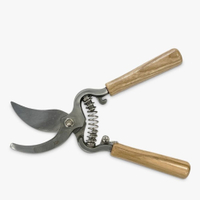Monty Don reveals his secret for keeping roses flowering for as long as possible
The garden expert shares his essential tip for deadheading roses more efficiently – and how often it needs to be done


Roses are in bloom and thanks to Monty's expert gardening advice they can stay that way until well into the autumn – his tip for deadheading with maximum efficiency is unmissable.
The weather might not have been perfect for garden parties but it has been ideal for helping garden trends thrive. Persistent rain mixed with warm temperatures has made conditions hugely beneficial for growing conditions – particularly roses.
If you have rose shrubs in your garden, you will have noticed them looking magnificent in the last week or so, as June is a key month for roses to take centre stage and welcome dazzling colour and fragrance to our plots.
"It is impossible to celebrate June without speaking of roses," says the famous gardening expert Monty Don. "This is their time." And to ensure they stay in the spotlight for as long as possible as the month goes on he shares his top tips on deadheading to ensure the shrubs flourish with aplomb all summer – like pruning roses with a softer approach.
Monty Don's rose deadheading advice: how to do it and how often

Monty Don attending the Stroke Association's Garden for Recovery at RHS Chelsea Flower Show 2024 on May 20
As a cottage garden favourite the rose is now available in many different varieties, as Monty explains on his monthly blog, where he shares his expert gardening advice.
'We now have 100 shrub roses with over 70 varieties as well as a dozen climbers," Monty explains. "Some are still very young and will need a few years to establish properly - but they still bear their lovely flowers."
"Many of these roses are the old-fashioned kinds like gallicas, damasks, centifolias, bourbons, albas and moss roses but I am increasingly planting English roses that are repeat flowering so the season extends beyond the glory days of June."
Sign up for the woman&home newsletter
Sign up to our free daily email for the latest royal and entertainment news, interesting opinion, expert advice on styling and beauty trends, and no-nonsense guides to the health and wellness questions you want answered.
"The secret of keeping any rose flowering as long as possible is to dead-head daily." Similar to deadheading Peonies, this essential gardening job is what ensures flourishing future blooms.

But rather than deadheading them by hand, he advises using the right tools to ensure the cut counts by multiplying flowering potential.
"Do not just pull off the spent petals but use secateurs and cut the spent stem right back to the next leaf or bud below it - however far down that is," Monty advises. "This will provoke a side-shoot which in turn will carry more flowers."
Grab some sharp secateurs and do a daily check to see if buds need removal to encourage new stems and late-blooming flowers.
Royal Botanic Gardens, Key by Spear & Jackson Wooden Bypass Secateurs: £22.99 at John Lewis
We recommend this expert-approved pair of secateurs, made with drop-forged carbon steel for strength to aid with precision when cutting. The FSC-certified ash wood handles are finished with a protective lacquer to make them hardy and weatherproof.
Monty goes on to say, "Some roses, especially the species such as rosa rugosa or rosa moysii, have glorious hips in autumn and these will only develop if the flowers are allowed to set seed and fruit, so enjoy the flowers as long as they last and do not deadhead so that they can develop into fruit."
Similar to the benefits of succession planting and what to do with tulips after flowering or how to care for daffodils, deadheading is an important maintenance task for preparing the plant for a better future.
Deadheading is not to be confused with pruning, which is a much more aggressive form of cutting the plants back. Roses are generally one of the plants you prune in January to promote vigorous growth and abundant flowering in the upcoming seasons. Therefore deadheading is the only job you should need to do in June to keep your flowers flourishing.

Tamara is a highly experienced homes and interiors journalist with a career spanning over 22 years. Now the Lifestyle Editor of womanandhome.com, she previously spent 18 years working with the style teams at Country Homes & Interiors and Ideal Home. With these award-winning interior teams, she gained a wealth of knowledge and honed her skills and passion for styling and writing about every aspect of lifestyle and interiors.
A true homes and interiors expert, Tamara has been an ambassador for leading interior brands on multiple occasions, including appearing on Matalan’s The Show and presenting at top interior trend forecasting events such as the Autumn Fair and Spring Fair.
-
 These River Island espadrilles will add some Kate Middleton-inspired glam into your spring-summer 2025 looks
These River Island espadrilles will add some Kate Middleton-inspired glam into your spring-summer 2025 looksWe love a lookalike that helps us get Kate Middleton's elegant style on a budget – these are so versatile and easy to style
By Charlie Elizabeth Culverhouse Published
-
 Want that 'your skin but better' look? Kate Winslet's go-to skin tint provides just that
Want that 'your skin but better' look? Kate Winslet's go-to skin tint provides just thatKate's makeup artist revealed the secret behind her natural-looking complexion and it's a glowy foundation alternative you can snap up online
By Charlie Elizabeth Culverhouse Published
